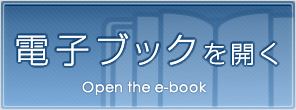「人道研究ジャーナル」創刊号 page 6/216
このページは 「人道研究ジャーナル」創刊号 の電子ブックに掲載されている6ページの概要です。
秒後に電子ブックの対象ページへ移動します。
「電子ブックを開く」をクリックすると今すぐ対象ページへ移動します。
概要:
Journal of Humanitarian Studies Vol. 1, 2012Message from ICRC PresidentDear readers,The response of the Japanese people as well as the Japanese Red Cross to thec ICRC / Thierry Gassmann Great East Jap....
Journal of Humanitarian Studies Vol. 1, 2012Message from ICRC PresidentDear readers,The response of the Japanese people as well as the Japanese Red Cross to thec ICRC / Thierry Gassmann Great East Japan Disaster has shown how widely the humanitarian principlesare shared amongst the Japanese people. Helping the people most in needcame as a natural reflex as manifested by neighbors sharing their home with disaster victims, aid volunteersarriving in thousands to help clear the debris or the unprecedented level of donation collected in andoutside Japan.The urge to help others was also coupled with a high level of professionalism. The response was very wellorganized and took place in a swift manner. The roles and procedures were clearly defined and all relevantactors knew the expected action to take. Resources and the know-how had been accumulated over the yearsand we may certainly say that the Japanese Red Cross is very experienced and professional actor in disasterresponse. The movement as a whole can learn from the experience of the Japanese Red Cross. I also havemuch expectation from the newly founded Japan Red Cross Institute whose mandate is amongst others toshare its know-how in disaster nursing with other sister societies.For the ICRC, the year 2011 was also a turbulent year. Armed conflicts, internal disturbances or strife,and natural and technological disasters ? from Africa to the Middle East and the Far East ? caused manythousands of deaths, massive destruction and immeasurable suffering, most of it unexpected and much ofit at almost the same time.Within a few days of violent unrest erupting in Libya in February, an ICRC team was deployed to theeastern city of Benghazi, which was crucial in facilitating further dialogue and access. The ICRC was alsothe first international humanitarian organization to establish a delegation and carry out activities in Tripoli.At the same time, the ICRC provided vital assistance to the victims of Cote d’Ivoire’s rapidly escalatingpost-election violence, in Abidjan and in the west of the country, where it was one of the only humanitarianorganizations on the ground.All of these crises came in addition to what had been planned for in the 2011 Appeal, which had alreadyset an all-time high based on the humanitarian needs in ongoing major operations in Afghanistan, Pakistan,Iraq, Somalia and Sudan, among others ? nearly all of them protracted armed conflicts. In Somalia, forexample, the population has been suffering from multiple pressures for many years ? armed conflict andregular natural disasters in particular ? without any real prospects of peace and development. There, theICRC ? together with the Somali Red Crescent Society ? responded to the worsening situation in 2011principally by significantly expanding its therapeutic feeding centres and health care facilities in areascontrolled by al-Shabaab, boosting an already major relief operation that included food distribution to 1million people.While Somalia and other major operations in situations of armed conflict will continue to be priorities forthe ICRC in 2012, we clearly must retain the flexibility necessary to respond to the unexpected.One crucial factor towards achieving this is the institution’s rapid deployment capacity. The events in Coted’Ivoire, and moreover in Libya (where the ICRC had no pre-existing operational structure to build upon),4人道研究ジャーナルVol. 1, 2012

